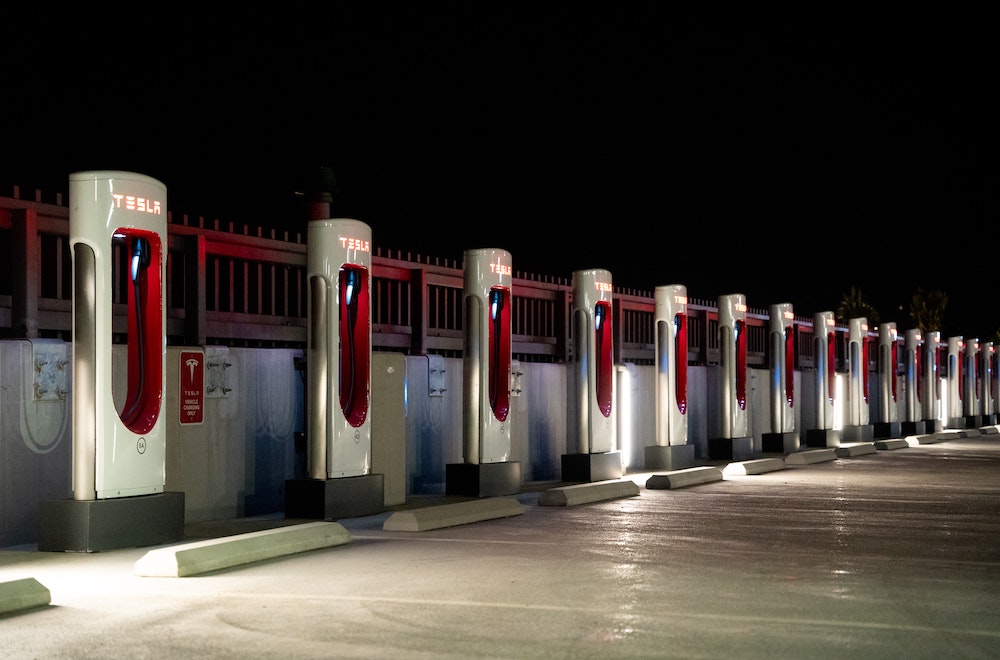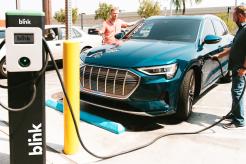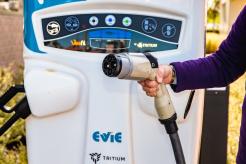Despite new vehicle sales slumping by 20% in the second quarter of 2022, electric vehicle sales soared. Sales of electrified vehicles – EVs, hybrids, and fuel-cell-powered vehicles – reached 442,740 units, a new quarterly record.
Increasing consumer adoption of EVs is partly a response to high gas prices and growing concerns over greenhouse gas (GHG) emissions and global warming. In addition, it reflects moves by automakers to expand the number of moderately-priced passenger EVs on the market to 33 models as of mid-2022.
The demand for EV charging stations is growing rapidly. Many public charging stations are owned or operated by private charging network companies. Recognizing the revenue potential, companies and entrepreneurs are investing in EV charging stations. Related investments include companies operating public charging station networks and manufacturing EV components.
Here are ten reasons to invest in an EV charging station.
1. Consumer demand for EV charging continues to grow.
Without widespread public charging stations, EVs could use only the power available from their batteries, severely reducing range. Charging stations allow owners to charge their electric vehicles while running errands, at work, or traveling. For entrepreneurs and business owners, this presents an opportunity.
The most common reason (58%) that American car buyers cite for not buying an EV is fear of not having enough range, i.e., running out of power before they can find a convenient charging station. However, new EV models offer more range, superior technology, and zero emissions, and consumers like what they see.
Even before the current administration introduced substantial tax credits for EV purchases in 2022, 42% of Americans surveyed by the Pew Research Center said they would consider purchasing an electric vehicle. The breakdown by age group ranges from 31% among those aged 65+ to a whopping 55% of those aged 18-29.
The electric vehicle charging station market was valued at $5.86 billion in 2021 and is expected to reach $53.25 billion by 2027.

2. Governments and Utility Companies are offering generous rebates and incentives.
The federal government has dedicated $5 billion in funding over the next five years to build a national network of EV charging stations. In addition, there are over $2 billion in utility rebates and government grants to help business owners and entrepreneurs get started (see some of the top available incentives by state).

3. An on-site EV charging station can help drive customer visits and increase revenue for your business.
One thing holding many back from switching to EVs is the need for more convenient places to charge their cars. Entrepreneurs and business owners can install chargers at existing businesses to give EV drivers more options.
This can be particularly beneficial for businesses where customers typically stay for a half hour or longer, e.g., restaurants, bars, clubs, entertainment venues, shopping malls, retail centers, hair and nail salons, fitness gyms, and workplaces.
Installing an EV charging station at a location can drive business and revenue. Digital maps such as Google Maps now offer options to search for charging stations, while apps like Plugshare exist specifically to locate public charging stations.
4. The cost of installing an EV charging station may be less than you think.
The cost of starting an EV charging station business will vary based on location, station size, and the type of charging components offered. In general, expect to invest an average of about $4,700 to $6,900 per port for a commercial Level 2 charging station. This covers equipment and basic start-up costs like marketing.
If you have to buy or lease the land on which the station will sit, the total cost can increase to between $10,000 and $50,000. However, adding a charging station can be very lucrative if you own the property.

5. Installation requirements are straightforward and simple to complete.
The primary requirement for installing an EV charging station is an easily accessible location with a reliable electrical power source.
Check with your utility commission to determine if there are any regulations governing the EV charging industry in your state. Beyond that, there may be some minimal local regulatory requirements, such as obtaining a business permit from your municipality, but the overall process is well-documented and straightforward.
5. Turnkey franchise investments are available.
There are several EV charging companies that offer turnkey EV charging solutions. These include the EV charging station, charger installation, permitting, charging station system design, and charger software.
WattLogic and Energys are examples of companies providing turnkey EV charging station franchises. Energys provides a website tool to help you calculate the profit you can make from owning an EV charging station franchise.
6. Return on investment is high.
The EV charging station business can be lucrative. Although the amount of money you can make depends on factors such as location and size, the owner of an EV charging station can generally expect a profit margin of 25-50%.
In other words, for each dollar you charge a customer to use your charging station, your ROI (profit after paying actual and allocated business costs) is between $0.25 and $0.50.
Your ability to monetize your investment depends on the number of EVs in your area, location quality, number and location of competitors, and more.
For more information on what to charge and how much you can make by owning an EV charging station, see this article at Evbox.com.
7. Opportunities to own charging stations abound.
To find an EV charging station investment opportunity, start with businesses already in the industry. For example, large companies like ChargePoint are always looking for new locations to install their charging stations and may enter into a partnership to use your available property.
Next, look to public places, such as airports, hospitals, and shopping malls, that currently need an EV charging station on site. There is an ever-increasing demand for EV charging stations in high-traffic public locations such as these.
Last but not least, talk to business owners, local governments, and other organizations to see if they are seeking investors or public-private partnerships to add EV charging stations to their facilities.
8. Investing in EV charging stations shows your commitment to sustainability.

Surveys show that 57% of consumers are willing to change their shopping habits to reduce their environmental impact. Apartmentdata.com found that 61% of renters will pay more to live in an “eco-friendly” apartment building. (There are a lot of other benefits of adding an EV charging station to your MUD.) These highlight a broader trend of people wanting to live, work and shop at environmentally conscious properties. Installing an EV charging station is one way your business can demonstrate a commitment to sustainability and appeal to eco-conscious individuals.
9. Alternatively, you can invest in companies with charging networks.

Buying stock in companies that own charging networks, like Tesla (TSLA) or ChargePoint (CHPT), can give you a piece of the massive growth in charging infrastructure expected to take place over the next decade.
To gain exposure to the entire market, look at ETFs such as Ultumus that have holdings in companies like Tesla, ChargePoint, Nio (NIO), Albemarle (ALB), BYD, Rivian (RIVN), Lucid (LCID), Aptiv (APTV) and more.
Are you interested in learning more about investing in EV charging infrastructure? Join us at the upcoming EV Charging Summit & Expo!






